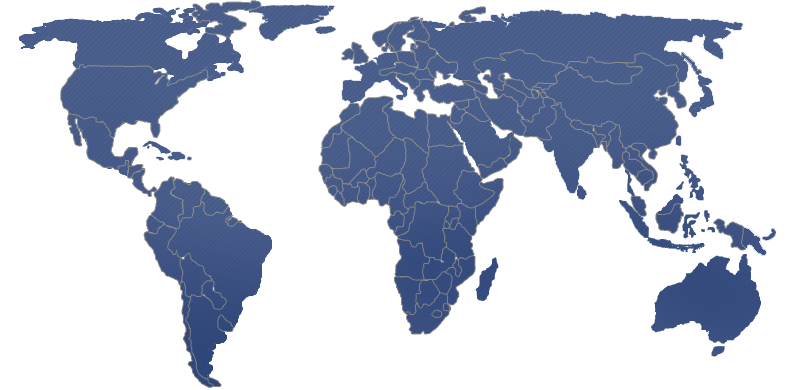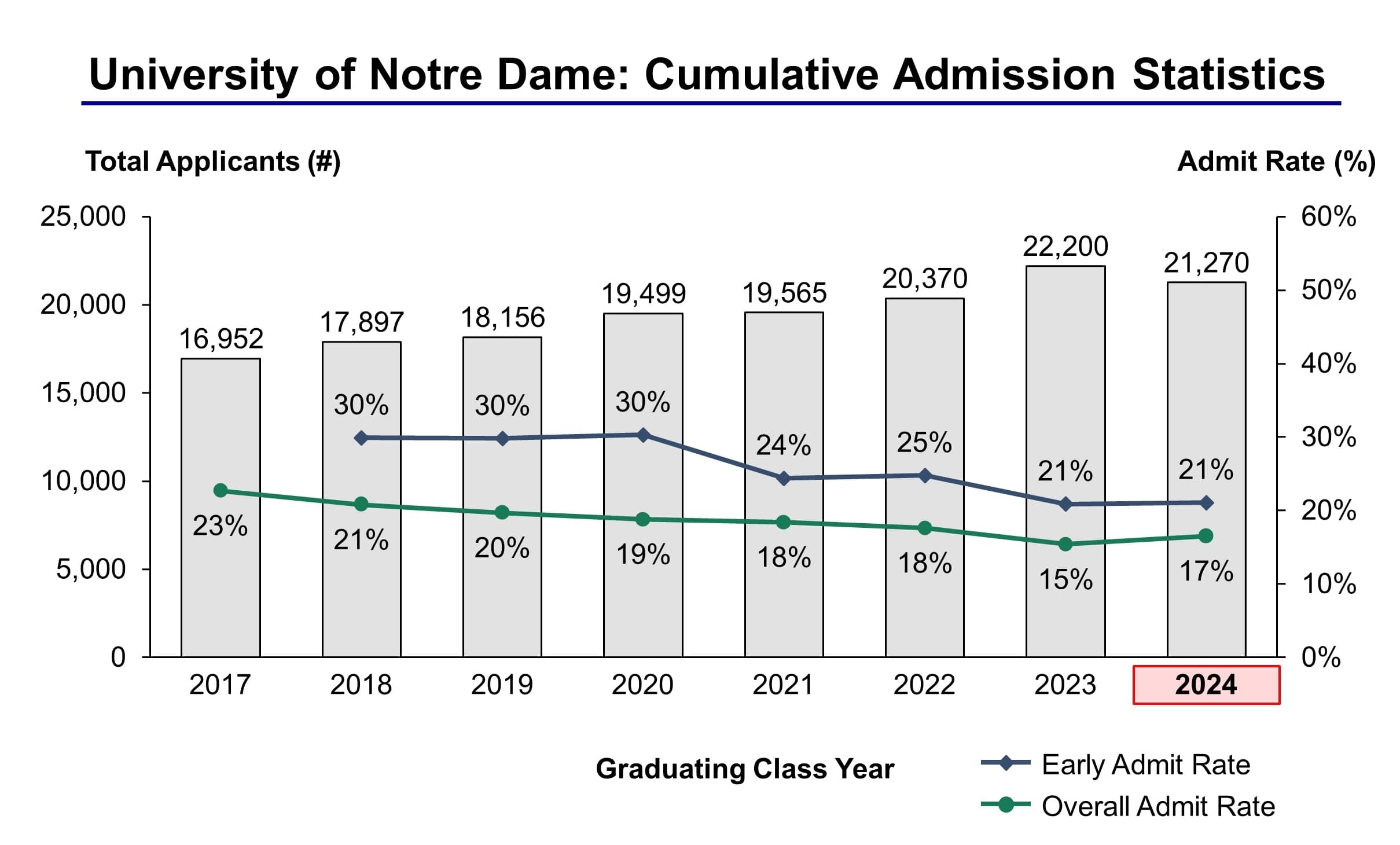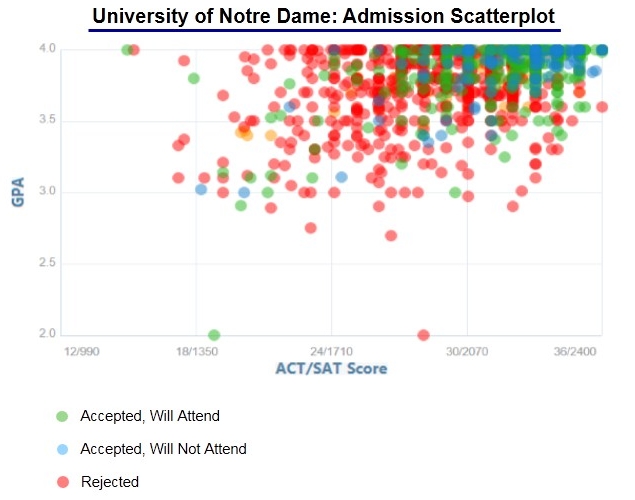University of Notre Dame is a highly competitive school and its admissions statistics make University of Notre Dame one of the 50 most competitive schools for undergraduate admissions globally. Similar to the trends across all top schools, University of Notre Dame acceptance rates have continued to decline over the past 8 years and will almost certainly continue to do so into the future.
The Class of 2024 was one of the most challenging years to be admitted to University of Notre Dame ever. For the Class of 2024, 21,270 students applied to University of Notre Dame of which 3,507 students were accepted, yielding an overall acceptance rate of 16.5%. Overall applications decreased by 4.2% over last year (2023 to 2024) from 22,200 to 21,270.
For the Class of 2024, 1,542 students were admitted through the early admissions process. Total early applications totaled 7,300, yielding an early acceptance rate of 21.1%. Early applications decreased by 0.5% over last year (2023 to 2024) from 7,334 to 7,300.
Founded in 1842 and located in St. Mary’s, IN, Notre Dame is a private research university, ranked eighth according to Forbes, which resides on what is said by many to be one of the most beautiful university settings in the entire United States. Notre Dame is known as a traditional university that still welcomes change, as well as a university that, as the university states, is “dedicated to religious belief no less than scientific knowledge”. Forty fellowships from the National Endowment for the Humanities have been extended to Notre Dame faculty members over recent years.
When it comes to the university’s “scientific knowledge”, the National Science Foundation ranks Notre Dame as one of the top three U.S. universities in the study of low-energy nuclear physics research. Notable Notre Dame alumni in such related areas of study include three NASA astronauts, Kevin Ford, Michael Good and Jim Wetherbee, as well as Former Flight Director of the Johnson Space Center, Annette Hasbrook.
Notre Dame comprises a student body that draws students from nearly every state in the U.S. and 100 other countries. Eighty percent of the undergraduate students live on campus, and eighty percent of those are also involved in community volunteer activities. Notre Dame’s graduation rate of ninety-six percent is exceeded only by Harvard and Yale.
Notre Dame does not have any social fraternities or sororities and uses the university residence halls for many social activities. Notre Dame participates in NCAA Division I athletics and regularly ranks in the Learfield Sports Directors’ Cup standings of the best overall athletic programs.
UNIVERSITY OF NOTRE DAME: CURRENT STUDENT POPULATION
- Total Enrollment 12,004
- Undergrad Enrollment 8,452
- Freshmen 2,020
- % Male/Female 54% / 46%
- % From Out of State 92%
- % Freshman from Public High School 50%
- % Undergrads Live on Campus 81%
- % African American 3%
- % Asian 6%
- % Caucasian 74%
- % Hispanic 9%
- % Native American <1%
- % Mixed (2+ Ethnicities) 3%
- % International 3%
- # of Countries Represented 87
UNIVERSITY OF NOTRE DAME: FRESHMAN STUDENT PROFILE
- Range SAT Critical Reading 660-750
- Range SAT Math 680-770
- Range SAT Writing 650-750
- Range ACT Composite 31-34
- Minimum Paper TOEFL 560
- Minimum Web-based TOEFL 100
- % Graduated Top 10% of Class 89%
- % Graduated Top 25% of Class 97%
- % Graduated Top 50% of Class 100%
UNIVERSITY OF NOTRE DAME: ACADEMICS
- Academic Rating 87/100
- % Students Returning for Sophomore Year 97%
- % Students Graduating within 4 Years 90%
- % Students Graduating within 6 Years 96%
- Calendar System Semester
- Student/Faculty Ratio 11:1
- Professor’s ‘Interesting’ Rating 82%
- Professor’s ‘Accessible’ Rating 86%
- Most classes have 10-19 students.
- Most lab/discussion groups have 10-19 students.
UNIVERSITY OF NOTRE DAME: MOST POPULAR MAJORS
- Finance/Business Economics
- Political Science and Government/International Studies
- Psychology









